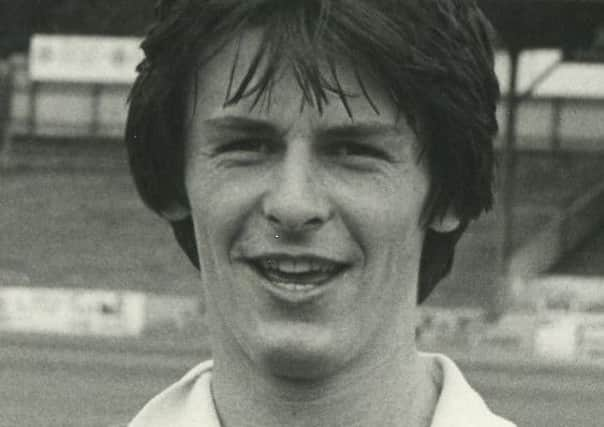Ex-Halifax midfielder Mick Kennedy dies, aged 57


Kennedy was living proof of the old adage subscribed to by Halifax Town boss George Kirby that if you were good enough you were old enough, writes club historian Johnny Meynell.
Having taken over a club stranded at the foot of the Fourth Division, Kirby was quick to promote Kennedy to the first team, sending him on as substitute for the game at Wimbledon in November 1978, but having witnessed the maturity in such a young player, Kennedy thereafter started every game over the next season and a half, during which time he was never once substituted, so important did Kirby consider him to the engine room of his side.
Advertisement
Hide AdAdvertisement
Hide AdKennedy, in fact, had already been pressed into action by Kirby’s predecessor Jimmy Lawson, when, as a raw 17-year-old, he came on as a 20th minute substitute for Johnny Johnston in a local derby with Bradford City at Valley Parade towards the end of September 1978, in the kind of fiery atmosphere Kennedy would grow to love.
His first start followed a few weeks later but Kennedy was back playing reserve football in the North Midlands League by the time Kirby took over.
He had been a product of the Salford Boys’ Club and joined Halifax Town as an apprentice in August 1977 under the tutelage of Alan Ball Snr.
But Kennedy didn’t sign professional forms until January 1979, by which time he was already established in the side, albeit one stranded at the foot of the Fourth Division.
Advertisement
Hide AdAdvertisement
Hide AdKennedy, a player with a crack left foot and a long throw among his armoury, developed a tigerish midfield partnership with Paul Hendrie during the 1979-80 season as the Shaymen enjoyed better days, and never did he relish a match more than the FA Cup tie with First Division Manchester City in January 1980, when he pitted his wits and came out on top in the dual with Steve Daley, a player who was, for a short time, Britain’s most expensive footballer.
Kennedy had made 86 league and cup appearances and scored five goals for the Shaymen and Kirby saw him as a vital member of his side which he hoped would challenge for honours and was desperate to keep him at The Shay, but in the summer of 1980, after rejecting new terms, the midfielder moved across to Huddersfield Town, newly promoted as champions of Division Four, for a club record £50,000, the fee set by a Football League tribunal after Kirby had valued the player at twice that amount.
Kennedy spent two seasons at the Leeds Road club, helping stabilise them as a Third Division side, before taking his combative qualities to Middlesbrough, where he played under Malcolm Allison. Kennedy had cost £100,000 but the Ayresome Park club recouped all that when he was sold in June 1984 to Portsmouth, where manager Alan Ball recognised Kennedy’s battling qualities as pivotal to the cause. After a near miss in 1985-86, Portsmouth returned to the First Division with Kennedy as skipper in 1986-87 and the side’s rough-house tactics didn’t always go down well with other teams.
Kennedy, himself, courted controversy when he claimed in a national newspaper that he was the hardest man in the Football League – ‘and proud of it’ – a boast which earned him a £5,000 fine.
Advertisement
Hide AdAdvertisement
Hide AdHaving won three Republic of Ireland under 21 caps whilst a Middlesbrough player, Kennedy won a fourth with Portsmouth, scoring two goals in a match against England in March 1985, and in May 1986 he made the step up to the full national side, winning two caps under Jack Charlton in an international competition against Iceland and Czechoslovakia.
Portsmouth’s stay in the top flight was short-lived, but before their relegation was confirmed, Kennedy had returned to Yorkshire in January 1988 to join Bradford City, helping them to the Second Division play-offs, only to lose to Middlesbrough in the semi-final.
Just over a year later he made a transfer-deadline move to Leicester City before spending one season back in the First Division with Luton Town, whom he joined in August 1989.
Two seasons with Stoke City followed before Kennedy wound down his career in the lower divisions with Chesterfield and Wigan Athletic, taking his total of Football League appearances to 536 and 29 goals.
Advertisement
Hide AdAdvertisement
Hide AdKennedy returned to Clare, Ireland, where his parents originated from, and had a stint coaching successful local side Lifford AFC.
In March 2018 he was inducted into the Portsmouth Hall of Fame, an honour which Kennedy claimed made him ‘the happiest man in the world.’
Alcohol-related issues prevented Kennedy from accepting the award in person and it was with great sadness that his death was announced on Sunday.